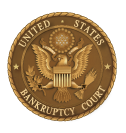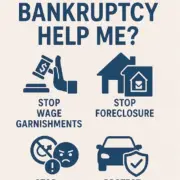Can I Rebuild My Credit after Bankruptcy? Yes You Can!
Bad credit records such as delinquencies, too much outstanding credit, slow pays, etc are all negative marks that will remain on your credit record for up to 10 years. In most cases, although the creditor may not be actively pursuing your debt, the debt remains valid and open to collection through wage garnishment or bank account seizure. Bankruptcy solves this problem because it eliminates your debt. After bankruptcy, your financial situation will be far better as you will no longer be shuffling funds in an attempt to cover all the bills. After bankruptcy, our clients are excited to create a new budget… that includes savings!
Usually within a year of filing bankruptcy, your credit record will improve substantially. You will become a better credit risk than you were prior to the bankruptcy. For many, bankruptcy is the first step to rebuild your credit, financial freedom and saving for the future.
Once you complete your case and your debts are discharged your old debt is eliminated. You will have a Fresh Start! Most creditors will see this fresh start and lack of other debt as a positive. One Caveat—creditors now want evidence that you can handle credit going forward. For this reason, after you file bankruptcy it will be extremely important that you control your use of credit.
Initially, bankruptcy will be a hit on your credit score but in the long run, the notation “discharged in bankruptcy” is much better than having your accounts reported as delinquent and open. We recommend that soon after your bankruptcy discharge you get a copy of your credit report. Review this report carefully, check to make sure that the debts you included in your bankruptcy are reported to be DISCHARGED with a ZERO balance. Dispute any accounts that have not been updated.
Depending on when you file Chapter 7 or 13, a bankruptcy will stay on your credit for 7-10 years. Despite this, you will soon have the opportunity to rebuild your credit. Some companies cater to those who have filed bankruptcy by offering secured credit cards with low credit lines and high interest rates. If you use this credit wisely and make all your payments on time you will prove that you have become a good credit risk.
What Factors Will Affect My Ability to get Credit?
Factors that are considered: Income, Job History, Credit Score, Debt-to-Income Ratio.
After Bankruptcy We Encourage our Clients To:
- Periodically monitor your credit record and dispute errors.
- Make “on time” payments.
- Maintain a stable job history.
- Deliberately and thoughtfully apply for new credit.
- Use no more than 10-30% of your available credit.
Are You Ready to Rebuild Your Credit? We Want to Help!
The lawyers of Keegan & Co. Attorneys have over 55 years combined experience helping people just like you resolve debt issues. Our attorneys have handled several thousand bankruptcy cases from the simple to the most complex. In all likelihood, we’ve seen your situation or type of problem dozens of times before. We can almost always help, even if it’s just advice on how to avoid bankruptcy.
Many are surprised to learn just how quick and painless the bankruptcy process is. You will need to provide us with certain documents and it is required that you take two short online credit counseling classes. Our attorneys will handle the rest. You and your attorney are required to appear for just one hearing. These hearings are held at our office.
Consultations are free and at Keegan & Co Attorneys and will always be with an experienced attorney, never with a paralegal or secretary. Call 513-752-3900 to schedule your personal consultation. We look forward to meeting you!








